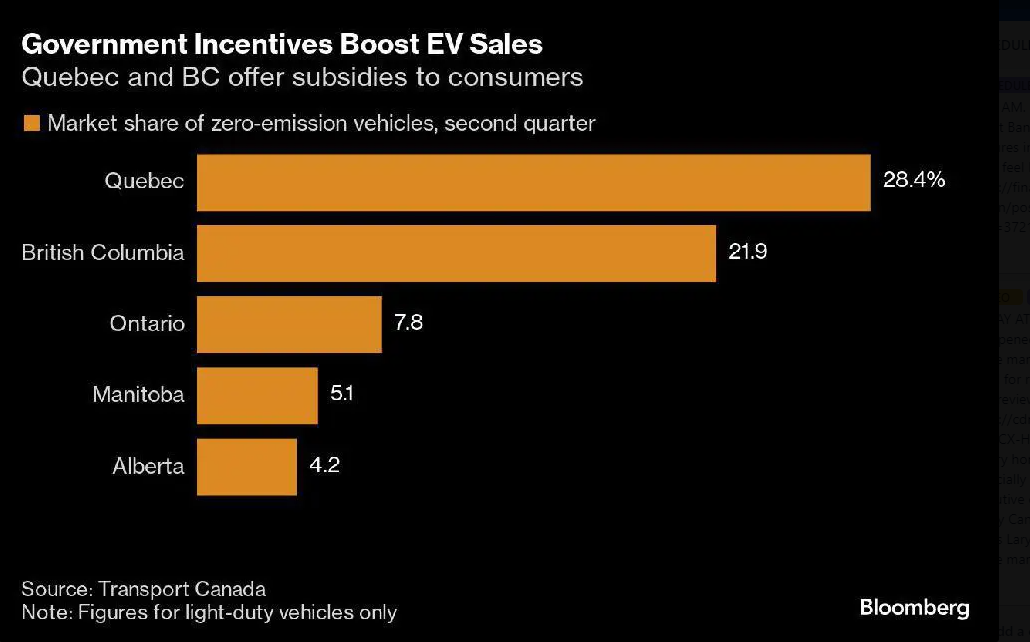GM began 2024 with EVs making up 3% of sales in Canada and closed the third quarter at 12.5%

At the moment, some consumers can get as much as $12,000 off the price of an electric car. Federal rebates deduct as much as $5,000, while the province of Quebec chips in as much as $7,000 and British Columbia offers a maximum of $4,000.
Meanwhile, the Canadian government has set an aggressive target for phasing out gasoline-powered vehicles.
It’s mandating that all new light-duty vehicles sold by 2035 must be electric or plug-in hybrid. There are interim targets of 20 per cent by 2026 and 60 per cent by 2030. Under Canada’s proposed system, automakers get compliance credits for EV sales and infrastructure investments, but incur deficits for falling short. Some provinces have their own targets — B.C.’s threatens manufacturers with financial penalties for shortfalls.

“Just as mandates and regulations start to bite, the timing is not necessarily lining up very well, in that the purchase incentive support comes off,” GM Canada President Kristian Aquilina said in an interview with Bloomberg News in Vancouver. “It will have to have an impact. So we cannot ignore that.”
Detroit-based GM and dealerships will be “working very hard to try to overcome that,” Aquilina said, but added other support could also boost adoption, such as better charging infrastructure.
The incentives have made a big difference for buyers. EV market share is several times higher in Quebec and British Columbia than Ontario, which cancelled its consumer rebate in 2018.
GM began 2024 with EVs making up about three per cent of sales in Canada and closed the third quarter with the proportion at 12.5 per cent, a spokeswoman said, which the company put down to good orders for its Equinox electric SUV.
The carmaking giant currently loses money on its battery-powered models, but chief executive Mary Barra said on Tuesday it is working to turn a profit on EVs “as quickly as possible.”
With assistance from Jay Zhao-Murray and David Welch